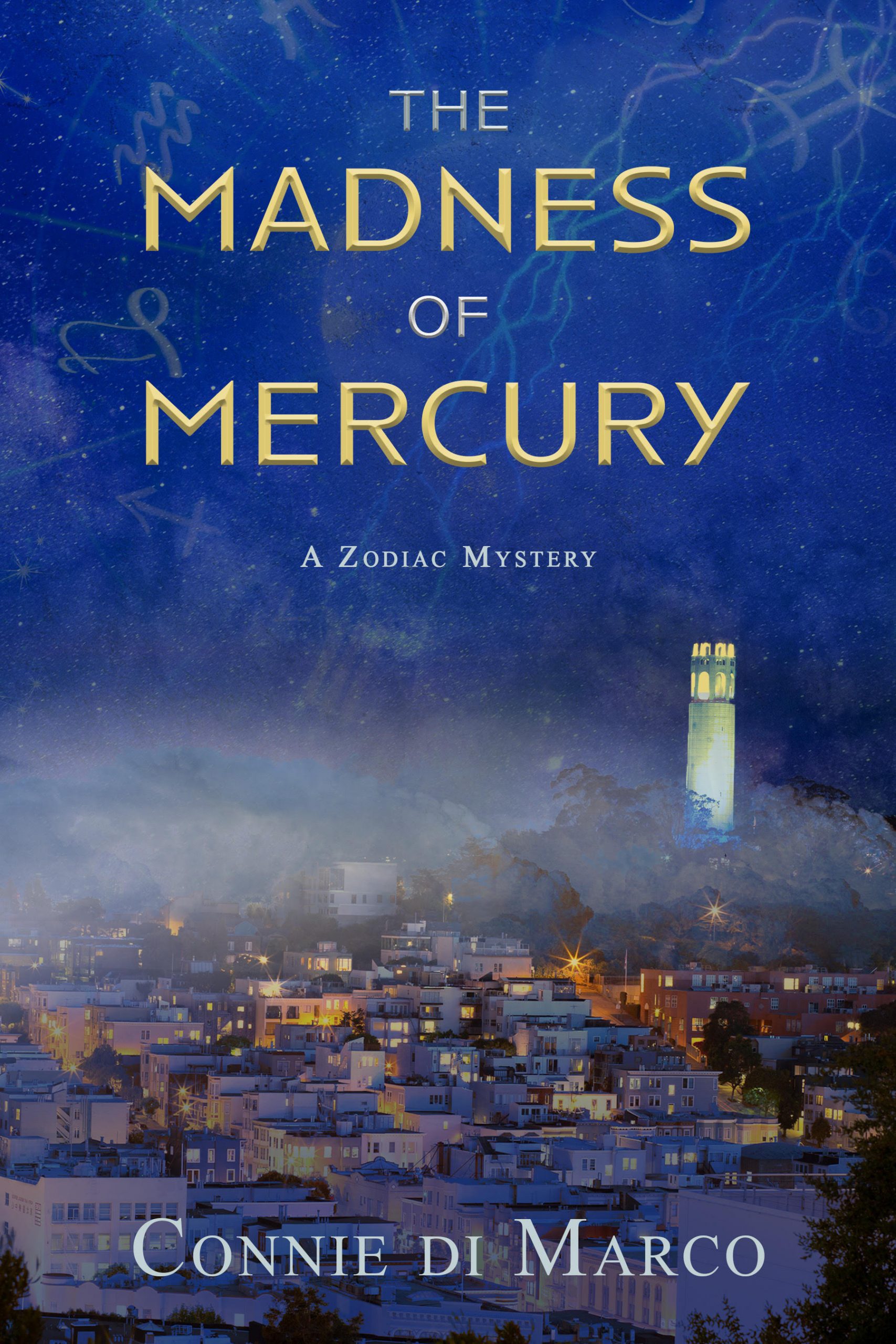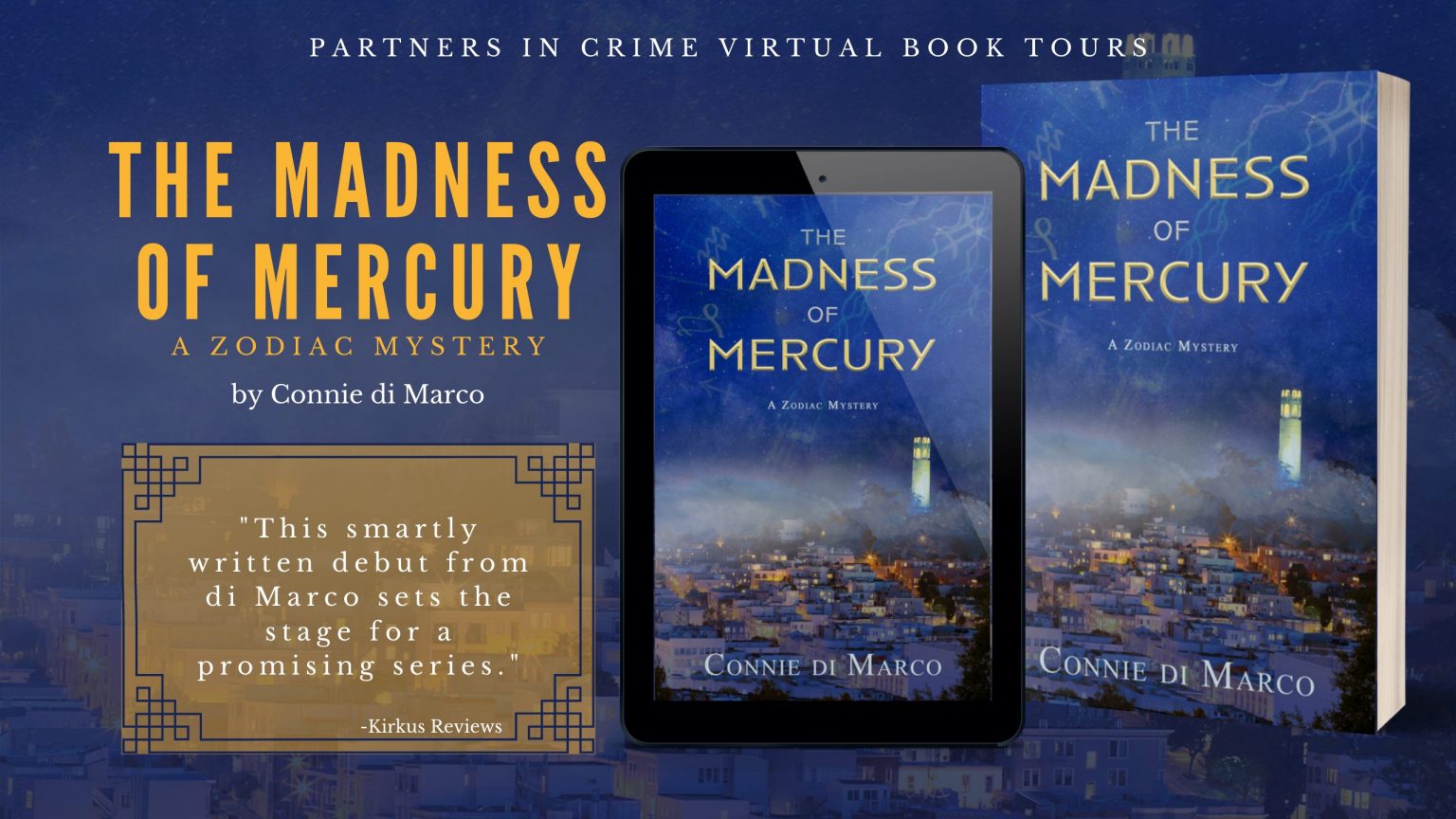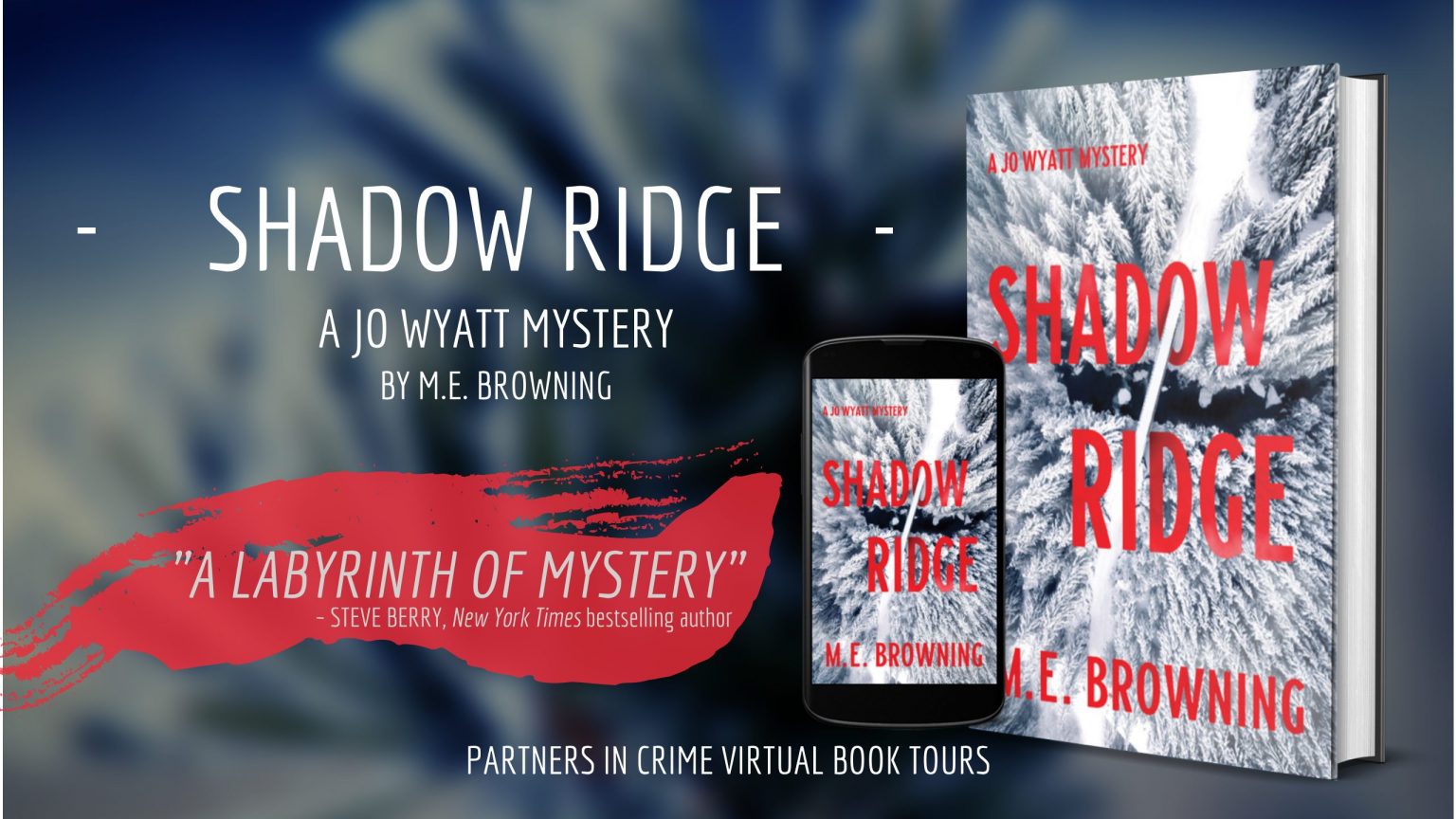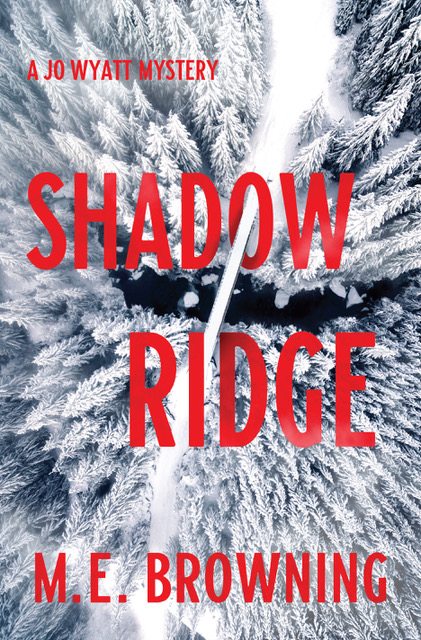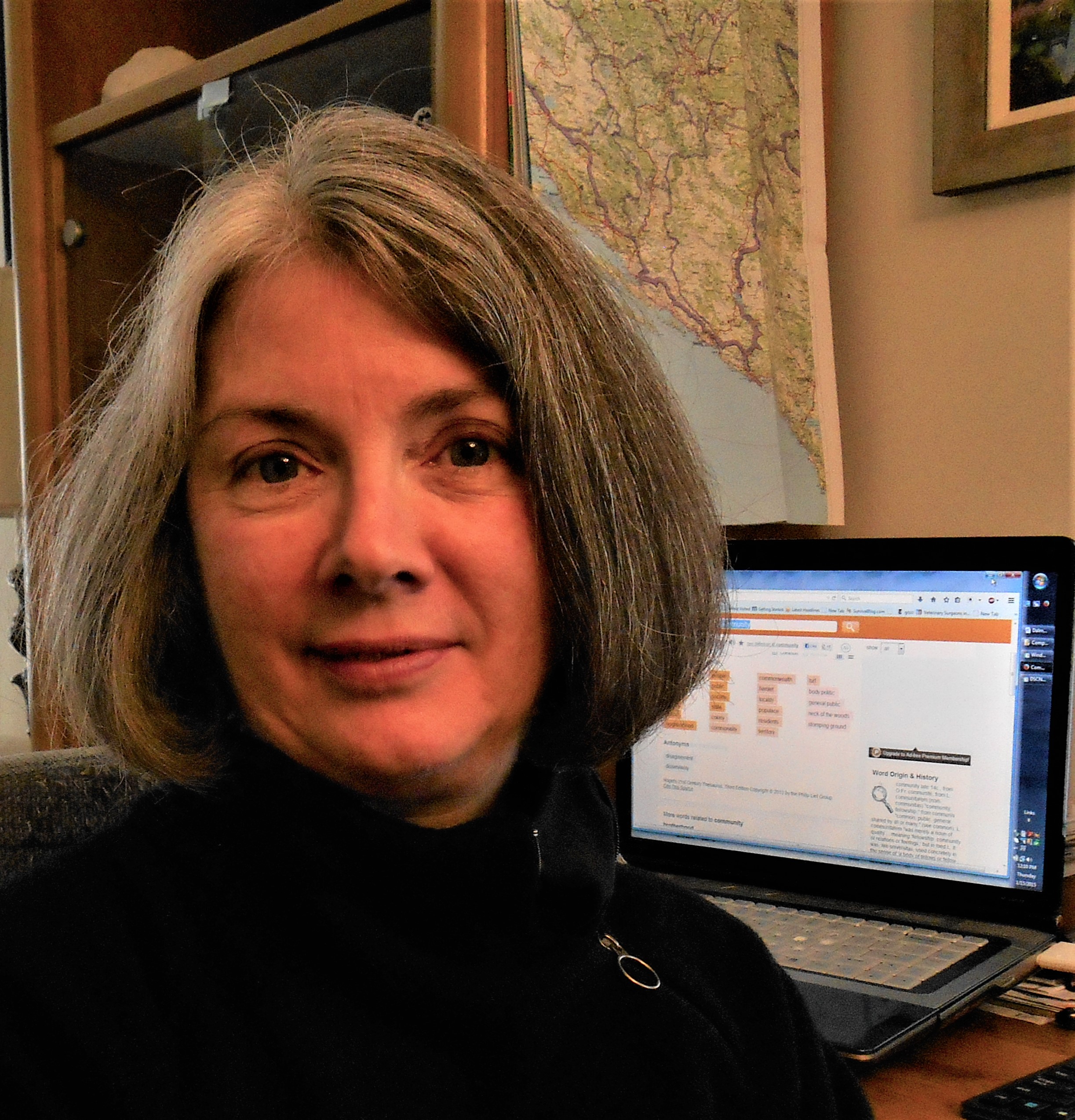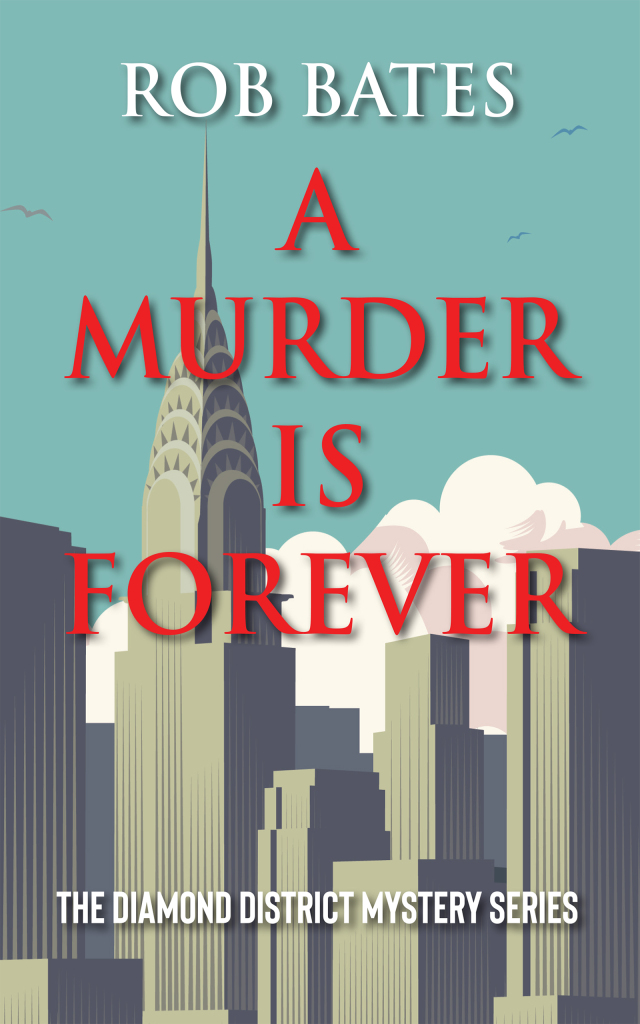Max Rosen always said the diamond business isn't about sorting the gems, it's about sorting the people. His daughter Mimi is about to learn that some people, like some diamonds, can be seriously flawed.
After Mimi's diamond-dealer cousin Yosef is murdered–seemingly for his $4 million pink diamond–Mimi finds herself in the middle of a massive conspiracy, where she doesn't know who to trust, or what to believe. Now she must find out the truth about both the diamond and her cousin, before whoever killed Yosef, gets her.
"[A] sprightly debut …. Bates, who has more than 25 years as a journalist covering the diamond business, easily slips in loads of fascinating information on diamonds and Jewish culture without losing sight of the mystery plot. Readers will look forward to Mimi’s further adventures." - Publishers Weekly
A MURDER IS FOREVER
By Rob Bates
CHAPTER ONE
As Mimi Rosen exited the subway and looked out on the Diamond District, she remembered the words of her therapist: “This won’t last forever.”
She sure hoped so. She had been working on Forty-Seventh Street for two months and was already pretty tired of it.
To outsiders, “The Diamond District” sounded glamorous, like a street awash in glitter. To Mimi, who had spent her life around New York, Forty-Seventh Street between Fifth and Sixth Avenues was a crowded, dirty eyesore of a block. The sidewalk was covered not with glitz, but with newspaper boxes, cigarettes, stacks of garbage bags, and, of course, lots of people.
Dozens of jewelry stores lined the street, all vying for attention, with red neon signs proclaiming “we buy gold” or “50 percent off.” Their windows boasted the requisite rows of glittery rings, and Mimi would sometimes see tourists ogling them, their eyes wide. She hated how the stores crammed so many gems in each display, until they all ran together like a mess of kids’ toys. For all its feints toward elegance, Forty-Seventh Street came off as the world’s sparkliest flea market.
Mimi knew the real action in the Diamond District was hidden from pedestrians, because it took place upstairs. There, in the nondescript grey and brown buildings that stood over the stores, billions in gems were bought, sold, traded, stored, cut, appraised, lost, found, and argued over. The upstairs wholesalers comprised the heart of the U.S. gem business; if someone bought a diamond anywhere in America, it had likely passed through Forty-Seventh Street.
Mimi’s father Max had spent his entire life as part of the small tight-knit diamond dealer community. It was a business based on who you knew—and even more, who you trusted. “This business isn’t about sorting the diamonds,” Max always said. “It’s about sorting the people.” Mimi would marvel how traders would seal million-dollar deals on handshakes, without a contract or lawyer in sight.
It helped that Forty-Seventh Street was comprised mostly of family businesses, owned by people from a narrow range of ethnic groups. Most—like Mimi’s father—were Orthodox, or religious, Jews. (“We’re the only people crazy enough to be in this industry,” as Max put it.) The Street was also home to a considerable contingent of Hasidic Jews, who were even more religious and identifiable by their black top hats and long flowing overcoats. Mimi once joked that Forty-Seventh Street was so diverse, it ran the gamut from Orthodox to ultra-Orthodox.
Now Mimi, while decidedly secular, was part of it all. Working for her father’s diamond company was not something she wanted to do, not something she ever dreamed she would do. Yet, here she was.
She had little choice. She had not worked full-time since being laid off from her editing job a year ago. She was already in debt from her divorce, which had cost more than her wedding, and netted little alimony. “That’s what happens when you divorce a lawyer,” said her shrink.
Six months after she lost her job, Mimi first asked her father for money. He happily leant it to her, though he added he wasn’t exactly Rockefeller. It was after her third request—accompanied, like the others, by heartfelt vows to pay him back—that he asked her to be the bookkeeper at his company. “I know you hate borrowing from me,” he told her. “This way, it isn’t charity. Besides, it’ll be nice having you around.”
Mimi protested she could barely keep track of her own finances. Her father reminded her that she got an A in accounting in high school. Which apparently qualified her to do the books at Max Rosen Diamond Company.
“We have new software, it makes it easy,” Max said. “Your mother, may she rest in peace, did it for years.”
Mimi put him off. She had a profession, and it wasn’t her mother’s.
Mimi was a journalist. She had worked at a newspaper for nine years, and a website for five. She was addicted to the thrill of the chase, the pump of adrenaline when she uncovered a hot story or piece of previously hidden info. There is no better sound to a reporter’s ears than someone sputtering, “How did you find that out?”
“It’s the perfect job for you,” her father once said. “You’re a professional nosy person.”
She loved journalism for a deeper reason, which she rarely admitted to her cynical reporter friends: She wanted to make a difference. As a girl, she was haunted by the stories they told in religious school, how Jews were killed in concentration camps while the world turned its head. Growing up, she devoured All the President’s Men and idolized pioneering female muckrakers like Nellie Bly.
Being a journalist was the only thing Mimi ever wanted to do, the only thing she knew how to do. She longed to do it again.
Which is why, she told her therapist, she would tell her father no.
Dr. Asner said she understood, in that soft melancholy coo common to all therapists. Then she crept forward on her chair.
“Maybe you should take your father up on this. He’s really throwing you a lifeline. You keep telling me how bad the editorial job market is.” She squinted and her glasses inched up her nose. “Sometimes people adjust their dreams. Put them on hold.”
Mimi felt the blood drain from her face. In her darker moments—and she had quite a few after her layoff—she had considered leaving journalism and doing something else, though she had no idea what that would be. Mimi always believed that giving up her lifelong passion would be tantamount to surrender.
Dr. Asner must have sensed her reaction, because she quickly backtracked.
“You can continue to look for a journalism job,” she said. “Who knows? Maybe working in the Diamond District will give you something to write about. Besides,”— here, her voice gained an edge—“you need the money.” That was driven home at the end of the forty-five minutes, when Dr. Asner announced that she couldn’t see Mimi for any more sessions, since Mimi hadn’t paid her for the last three.
By that point, Mimi didn’t know whether to argue, burst into tears, or wave a white flag and admit the world had won.
It was a cold February morning as Mimi walked down Forty-Seventh Street to her father’s office, following an hour-plus commute from New Jersey that included a car, a bus, and a subway. With her piercing hazel eyes, glossy brown hair, and closely set features, Mimi was frequently told she was pretty, though she never quite believed it. She had just gotten her hair cut short to commemorate her thirty-eighth birthday, hoping for a more “mature” look. She had always been self-conscious about her height; she was five foot four and tried to walk taller. She was wearing a navy dress that she’d snagged for a good price on eBay; it was professional enough to please her father, who wanted everyone to look nice in the office, without being so nice that she was wasting one of her few good outfits. She was bundled up with multiple layers and a heavy coat—to protect against the winter chill, as well as the madness around her.
Even though it was before 9 AM, Forty-Seventh Street was, as usual, packed, and Mimi gritted her teeth as she bobbed and weaved through the endless crowd. She sidestepped the store workers grabbing a smoke, covering her mouth so she wouldn’t get cancer. She swerved around the stern-looking guard unloading the armored car, with the gun conspicuously dangling from his belt. And she dodged the “hawker” trying to lure her into a jewelry store, who every day asked if she had gold to sell, even though every day she told him no.
Finally, Mimi reached her father’s building, 460 Fifth, the most popular address on “The Street.” After a few minutes standing and tapping her foot on the security line, she handed her driver’s license to the security guard and called out, “Rosen Diamonds.”
“Miss,” growled the guard with the oversized forehead who’d seen her three days a week for the past two months, “you should get a building ID. It’ll save you time in the morning.”
“It’s okay. I won’t be working here for long,” she chirped, though she wasn’t quite sure of that.
Next stop, the elevator bank. Mimi had an irrational fear of elevators; she was always worried she would die in one. She particularly hated these elevators, which were extremely narrow and perpetually packed. She envied those for whom a subway was their sole exposure to a cramped unpleasant space.
As the car rose, one occupant asked a Hasidic dealer how he was finding things.
“All you can do is put on your shoes. The rest is up to the man upstairs.”
Only in the diamond business. Mimi’s last job was thirty blocks away, yet in a different universe.
At each floor, dealers pushed and rushed like they were escaping a fire. When the elevator reached her floor, Mimi too elbowed her way to freedom.
As she walked to her father’s office, she marveled how the building, so fancy and impressive when she was a kid, had sunk into disrepair. The carpets were frayed, the paint was peeling, and the bathroom rarely contained more than one functioning toilet. If management properly maintained the building, they’d charge Midtown Manhattan rents, which small dealers like her father couldn’t afford. The neglect suited everyone.
She spied a new handwritten sign, “No large minyans, by order of the fire department.” Mimi produced a deep sigh. She had long ago left her religious background behind. Somehow, she was now working in a building where they warn against praying in the halls. She was going backward.
Perhaps the dealer in the elevator was right. You could only put on your shoes and do your best. She grabbed her pocketbook strap, threw her head back, and was just about at her father’s office when she heard the yelling.
“I’m so tired of waiting, Yosef! It’s not fair!”
Max’s receptionist, Channah, was arguing with her boyfriend, Yosef, a small-time, perpetually unsuccessfully diamond dealer. Making it more awkward: Yosef was Mimi’s cousin.
Channah and Yosef had dated for nearly eighteen months without getting married—an eternity in Channah’s community. Still, whenever Channah complained, Mimi remembered how her ex-husband only popped the question after three years and two ultimatums.
“Give me more time,” Yosef stuttered, as he tended to do when nervous. “I want to be successful in the business.”
“When’s that going to happen? The year three thousand?”
The argument shifted to Yiddish, which Mimi didn’t understand, though they were yelling so fiercely she didn’t need to. Finally, tall, skinny Yosef stormed out of the office, his black hat and suit set off by his red face. He was walking so fast he didn’t notice his cousin Mimi standing against the wall. Given the circumstances, she didn’t stop him to say hello. She watched his back grow smaller as he stomped and grunted down the hall.
Mimi gave Channah time to cool down. After a minute checking in vain for responses to her latest freelance pitch—editors weren’t even bothering to reject her anymore—she rang the doorbell. She flashed a half-smile at the security camera stationed over the door, and Channah buzzed her in. Mimi hopped into the “man trap,” the small square space between security doors that was a standard feature of diamond offices. She let the first door slam behind her, heard the second buzz, pulled the metal handle on the inner door, and said hello to Channah, perched at her standard spot at the reception desk.
Channah had long dark curly hair, which she constantly twirled; a round, expressive face, dotted with black freckles; and a voluptuous figure that even her modest religious clothing couldn’t hide.
“Did you hear us argue?” she asked Mimi.
“No,” she sputtered. “I mean—”
Channah smiled and pointed to the video monitor on her desk. “I could see you on the camera.” Her shoulders slouched. “It was the same stupid argument we always have. Even I’m bored by it.”
“Hang in there. We’ll talk at lunch.” Mimi and Channah shared a quick hug, and Mimi walked back to the office.
She was greeted by her father’s smile and a peck on the cheek. If anything made this job worthwhile, it was that grin. Plus the money.
“How are things this morning?”
“Baruch Hashem,” Max replied. Max said “thank God” all the time, even during his wife’s sickness, when he really didn’t seem all that thankful.
Sure enough, he added, “We’re having a crisis.”
Mimi almost rolled her eyes. It was always a crisis in the office. When Mimi was young, the family joke was that business was either “terrible” or “worse than terrible.”
Lately, her dad seemed more agitated than normal. As he spoke, he puttered in a circle and his hands clutched a pack of Tums. That usually didn’t come out until noon.
“I can’t find the two-carat pear shape.” He threw his arms up and his forehead exploded into a sea of worry lines. “It’s not here, it’s not there. It’s nowhere.”
Max Rosen was dressed, as usual, in a white button-down shirt and brown wool slacks, with a jeweler’s loupe dangling on a rope from his neck. His glasses sat off-kilter on his nose, and two shocks of white hair jutted from his skull like wings. When he was excited about something, like this missing diamond, the veins in his neck popped and the bobby-pinned yarmulke seemed to flap on his head.
Mimi stifled a laugh. That was the crisis? Diamonds always got lost in the office. As kids, Mimi and her two sisters used to come in on weekends and be paid one dollar for every stone they found on the floor. “They travel,” Max would say.
It was no surprise that things went missing in that vortex of an office. Every desk was submerged under a huge stack of books, magazines, and papers. The most pressing were placed on the seat near her father’s desk, what he called his “in-chair.”
When Mimi’s mother worked there, she kept a lid on the chaos. After her death, Max hired a few bookkeepers, none of whom lasted; two years later, the job had somehow fallen to Mimi.
Eventually, Channah found the two-carat pear shape, snug in its parcel papers, right next to the bathroom keys. The only logical explanation was that Max was examining it while on the toilet.
Max sheepishly returned to his desk. Mimi loved watching her father at work. She was fascinated by how he joked with friends, took grief from clients, and kept track of five things at once. It felt exotic and forbidden, like observing an animal in its natural habitat.
For the most part, they got along, which was no small thing. Over the years, there had been tense moments as he struggled to accept that she was no longer religious. Lately, he rarely brought the topic up, and she didn’t want him to. Her split from her non-Jewish ex probably helped.
On occasion, the old strains resurfaced, in subtle ways. Max’s desk was covered with photos—mostly of Mimi’s mom and her religious sisters and their religious broods. One time when Max was at lunch, Mimi tiptoed over to glance at them, and—not incidentally—check how many were of her. It made her feel silly, yet she couldn’t help herself. She was a professional nosy person.
She got her answer: out of about twenty photos, Mimi was in three, an old family photo and two pics from her sisters’ weddings. That was less than expected. She tried not to take it personally. She had no kids and her marriage was a bust. What was there to show off?
Mimi spent most of the morning deciphering her father’s books—a task made more difficult by his aging computer system, which regularly stalled and crashed. Her father’s “new” software was actually fifteen years old.
Sometimes she wished he gave her more substantial tasks to do. While her father would never say it, he didn’t consider the diamond industry a place for women, as it had always been male-dominated—even though, ironically, it catered mostly to females. That was fine with Mimi. She didn’t want to devote her life to a rock.
At 1 PM, Channah and Mimi headed for Kosher Gourmet, their usual lunch spot. Mimi always joked, “I don’t know if it’s kosher, but it’s not gourmet.”
In the two months Mimi had worked for her father, she and Channah had become fast friends, bonding over their shared love of mystery novels, crossword puzzles, and sarcastic senses of humor.
Channah was not Mimi’s typical friend. She was twenty-three and her parents were strictly religious, even more than Mimi’s. She commuted to Forty-Seventh Street every day on a charter bus from Borough Park, a frum enclave in Brooklyn. The Diamond District was her main exposure to the wider world. She reminded Mimi of her younger, more religious self, under her parents’ thrall yet curious what else was out there.
Mimi was not Channah’s typical friend either. During their lunches, Channah quizzed her on the taste of non-Kosher food (it didn’t taste any different, Mimi told her); sex (“When the time comes,” Mimi said, “you’ll figure it out”); and popular culture (“Can you explain,” Channah once asked, “why Kim Kardashian is famous?” Mimi just said no.) Today, as usual, they talked about Yosef.
“I don’t get it.” Channah wrapped sesame noodles around her white plastic fork. “I love him. He loves me. Why not get married?”
Mimi took a sip from her Styrofoam cup filled with warm tap water. She preferred bottled water but couldn’t afford it. “Have you thought of giving Yosef an ultimatum? Tell him if he doesn’t marry you by a certain date, that’s it.”
“Yosef wouldn’t take that seriously.” Channah turned her eyes to her tray.
“Why not?”
“Cause I’ve done that already. Three times! I backed down every time.” Her fork toyed with her food. “I believe it is beshert that Yosef and I will end up together. I’ve thought so since I first met him at your father’s office, and he smiled at me. What choice do I have?” Her elbow nudged her tray across the table.
“I understand why he’s waiting. He wants to be a steady provider. That’s a good thing, right?”
Actually, Mimi found it sexist. She didn’t say that, because she found many things in Channah’s world sexist.
“He just needs to sell that pink,” Channah said, spearing a dark brown cube of chicken.
Mimi took a quick sip of water. “That pink” was an awkward subject.
One month ago, Yosef had bought a three-point-two carat pink diamond. It was the biggest purchase of his career, the kind of high-risk move that could make or break his business. Max was overjoyed. “Do you know how rare pink diamonds are?” he exclaimed. “And it’s a three-carater! Sounds like a great buy!”
That was, until Yosef proudly presented it to his uncle Max, who inspected it under his favorite lamp, muttered “very nice,” and quickly handed it back.
It was only after Yosef left that Max dismissed his nephew’s score as a strop, a dog of a diamond, the kind of unsellable item that gathered dust in a safe.
“It has so many pepper spots,” Max lamented. “The color’s not strong at all. No one will buy that thing.”
“Maybe he got it for a good price,” Mimi said.
“I’m sure whoever sold it to him said it was the bargain of the century. Anytime someone offers me a metziah, that’s a sign they can’t sell the stone. There’s a saying, ‘your metziah is my strop.’” His face sagged. “I wish he talked to me first. That stone is worthless. I don’t have the heart to tell him.”
When Channah brought up the big pink at lunch, Mimi didn’t want to dwell on the subject. “What’s happening with that?” she asked, as casually as possible.
“Didn’t you hear?” Channah jerked forward. “It got the highest grade possible on its USGR cert.”
“You’ll have to translate.” Mimi tuned out most diamond talk.
“Cert is short for certificate, meaning grading report. The USGR is the U.S. Academy for Gemological Research, the best lab in the industry.”
Mimi just stared.
“That stone’s worth four million dollars.”
That Mimi understood. “Wow.” A lot of money for a dog of a diamond.
“Four point one million, to be exact.” Channah laughed. “Don’t want to leave that point one out!”
“I thought that stone was—”
“Ugly?” Channah chuckled. “Me too! I don’t understand how it got that grade. I guess it doesn’t matter. As your father says, ‘today the paper is worth more than the diamond.’” She slurped some diet soda.
“Is Yosef going to get four million dollars?”
“Who knows? He isn’t exactly an expert in selling such a stone. Your father convinced him to post it on one of the online trading networks. Someone called him about it yesterday.”
“That’s great!”
“Hopefully. If anyone could screw this up, Yosef could.” Channah’s mouth curled downward. “I keep checking my phone to see if there’s any news.” She flipped over her iPhone, saw nothing, and flipped it back. “The way I figure, if he sells that stone, he’ll have to marry me. Unless he comes up with some new excuse. He wouldn’t do that, right? Not after all this time. Would he?”
Mimi struggled to keep herself in check. She was dying to shake Channah and scream that if Yosef wasn’t giving her what she wanted, it was time to move on. She didn’t. Yosef was her cousin. Mimi was in no position to critique someone else’s love life. She always told people hers was “on hold.” It was basically non-existent.
Plus, she remembered how, weeks before her wedding, her friends warned her that her fiancé had a wandering eye. That just strengthened her resolve to marry him, even though in retrospect, they were right. “With situations like that,” her therapist said later, “I always recommend not to say anything. Just be a supportive friend.”
Mimi waited until Channah stopped speaking. She touched her hand. “I’m sure it will work out,” she said.
***
Excerpt from A Murder is Forever by Rob Bates. Copyright 2020 by Rob Bates. Reproduced with permission from Rob Bates. All rights reserved.
Rob Bates has written about the diamond industry for over 25 years. He is currently the news director of JCK, the leading publication in the jewelry industry, which just celebrated its 150th anniversary. He has won 12 editorial awards, and been quoted as an industry authority in The New York Times, The Wall Street Journal, and on National Public Radio. He is also a comedy writer and performer, whose work has appeared on Saturday Night Live’s Weekend Update segment, comedycentral.com, and McSweeneys He has also written for Time Out New York, New York Newsday, and Fastcompany.com. He lives in Manhattan with his wife and son.
Visit these other great hosts on this tour for more great reviews, interviews, guest posts, and giveaways!
